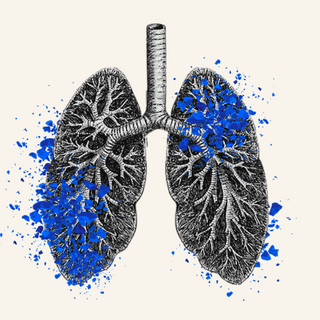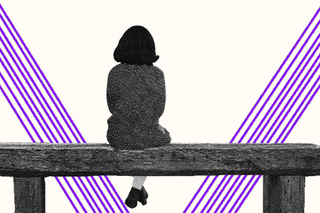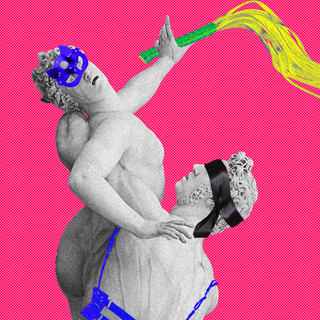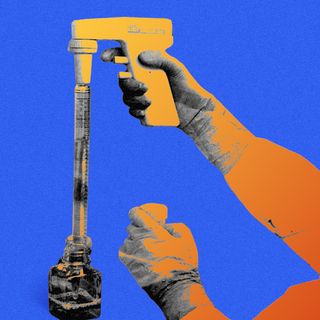
How Feeling Unloved, Unwanted Before the Age of 18 Can Lead to Depression in Adult Life
“They felt lonely and uncared for as children, and they feel that way as adults too,” notes a psychotherapist.

Every once in a while, people feel unwanted — having lived through the pandemic, and the social distancing measures it imposed, it’s a feeling most of us know only too well in 2022. But for those who experienced it before entering adulthood, the feelings of being unloved and uncared for might bear more long-term consequences for their mental health. A new study suggests that being forced to cope with the notion of being unwanted before the age of 18, can spell a strong risk of depression in one’s adult years.
Published in the journal Psychological Reports, the study is based on an analysis of figures obtained through a longitudinal survey in the U.S. Through the answers of more than 5,000 individuals with an average age of 29 years, the researchers attempted to understand the link between childhood experiences of neglect, and the prevalence of depression in adulthood. They found that, growing up, participants who felt unloved and unwanted “often,” presented far greater odds of being diagnosed with depression than those who only felt so “sometimes.”
Cynthia Lubow, a psychotherapist who wasn’t involved in the study, describes this phenomenon as “depression com[ing] from what didn’t happen.” According to Lubow, childhood neglect — while seemingly less dramatic than physical, sexual, or even verbal assault on a child — can spell long-term consequences for people’s mental health, especially depression.
“Neglect can cause children to feel profoundly lonely and empty… Perhaps, most insidiously, neglected children often conclude they aren’t worth parental attention and care, or that their needs aren’t important, or just aren’t ever going to get met… They can grow up with these invisible wounds, not even associating them with their parents, who may be loving, well-intentioned people,” Lubow notes.
Related on The Swaddle:
Why Some People Feel More Lonely Than Others
Loneliness, then, becomes the element that drives one to feel unloved and unwanted. But loneliness isn’t always measured in terms of physical isolation; it can include the absence of meaningful and empathetic equations with people around. “Although isolation is an important risk factor, having company doesn’t always prevent loneliness — and being alone doesn’t always cause it… Loneliness is the experience of being not alone but without the other in a way that feels meaningful,” Elizabeth Tillinghast, an assistant clinical professor of psychiatry at Columbia University, who wasn’t part of the present study, wrote in The Conversation. “What matters is the internal experience.”
However, as Tillinghast notes, this form of loneliness may not always be visible — let alone acknowledged by others. This complicates people’s access to healing and care. Moreover, since loneliness is often accompanied by feelings of shame and inadequacy, too, those experiencing it often try to mask its existence before others.
Unrecognized thus, loneliness can linger unaddressed under the surface for years, gradually tending towards permanence. “A child may grow up in a family where everything seems normal on the outside, but still feel lonely… They felt lonely and uncared for as children, and they feel that way as adults too,” Tillinghast added.
And as past studies have shown, the higher an individual scores on tests measuring their loneliness, the more severe their symptoms of depression usually are; a one-point rise on the loneliness scale predicted a 16% escalation in a person’s depressive symptom severity score.
In terms of the analysis presented by the new study, it isn’t just the parent’s treatment of an individual preceding adulthood that shapes their mental health as adults. It is also how people, as adults now, recall their childhood, that has a bearing on their self-worth. In other words, how they recall being treated — as opposed to how they might have felt in that moment — can impact their mental health as adults.
Related on The Swaddle:
How Lack of Sleep Makes People Less Helpful, More Lonely
But depression isn’t the only mental health-related consequence of childhood neglect, though. Anxiety and substance use disorders, dissociative symptoms, and even PTSD or C-PTSD can materialize in its aftermath. To make matters worse, endangering people’s mental health is, perhaps, just the tip of the loneliness iceberg. Research suggests that loneliness can make people as vulnerable to early death as either smoking or being overweight by 45 kilograms. In other words, loneliness can be deadly.
However, as the present study noted, too, the frequency and intensity of neglect that a child faces, can determine the scale of its impact on their lives as adults. “[T]here is a huge range of severity of neglect, depending on factors such as how young the child is when it begins, how extensive it is, whether there’s a basic foundation of love and respect from parents, [and] whether there are other adults who provide at least some of what the child needs when parents don’t, what other abuse is involved, and whether other resources are available,” notes Lubow.
The nature of neglect critically determines how the person makes sense of their emotions and self-worth. It can be influenced by a host of factors, including living in poverty, living with neurodivergence or learning disabilities, growing up in an environment of domestic abuse, or being raised by hyper-independent or burnt-out guardians. As such, there can’t be a one-size-fits-all policy to deal with the impact of childhood neglect on a person’s mental health. “When chronic loneliness comes from childhood neglect, social outreach programs are not likely to be sufficient… [W]e can tailor interventions to address the cause, rather than just the condition of being alone,” Tillinghast wrote.
While the present study highlights the link between childhood neglect and adulthood depression, future research could strive to gain more specific insights into the varied spectrum of neglect and how people make sense of it — as children, and as adults. Perhaps, then, we would be closer to understanding how to help individuals who have made their way into adulthood with the invisible — but heavy — baggage of childhood neglect.
Devrupa Rakshit is an Associate Editor at The Swaddle. She is a lawyer by education, a poet by accident, a painter by shaukh, and autistic by birth. You can find her on Instagram @devruparakshit.
Related


The Difference Between a ‘Kink’ and a ‘Fetish’
